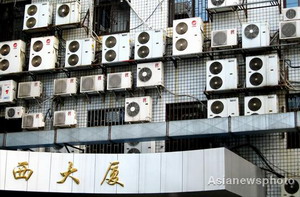Taste for outbound M&As strong in H1, may double in H2
Updated: 2011-09-06 11:23
By Wang Ying (China Daily)
|
|||||||||||
SHANGHAI - Uncertainty in the financial market did not dampen merger-and-acquisition (M&A) sentiment in China, and Chinese enterprises reached deal value of $17 billion during the first half of 2011, a newly released report said on Monday.
According to the latest report of Deloitte Touche Tohmatsu Ltd, after registering deal value of $62 billion in outbound M&As in 2010, China continued its hunt for overseas bargains in the first half of this year. But as the second-largest economy in the world, the country could have been more ambitious.
"M&A activities will continue to grow because Chinese companies have become more adept and sophisticated at acquiring assets overseas, even in the face of market turbulence," the report said.
Seventy-five M&As were announced in the first half of 2011, two more than in the same period in 2010. However, the total value of deals was $17 billion, lower than $20.8 billion of the same period of last year.
"But we expect it to double in the next half of this year," said Lawrence Chia, head of M&A services of Deloitte China and global Chinese services group co-chairman.
Large M&As deals accounted for a larger share of the total compared with five years ago, the report said. About 20 percent of the outbound M&A deals reached over the 18 months between January 2010 and June 2011 were valued at more than $500 million, while such only 12 percent of all outbound M&A deals between 2005 and the first half of 2009 were of that magnitude.
"Chinese companies are increasingly willing to invest abroad, driven by the need to secure raw materials from overseas and to escape from the overly crowded domestic markets. By investing overseas, Chinese companies can also acquire new technologies, create partnerships back at home and pave the way for their future investment in a target country," Chia said.
China's M&A activity peaked in the fourth quarter of 2010 with a record 51 transactions worth $29.9 billion, driven primarily by a trio of multibillion-dollar energy and resources deals in the United Kingdom and South America.
Deloitte expected Chinese companies to play an increasingly important role in the global economy and the M&A markets in the next few years, and energy and resources will be the most active area for Chinese investors.
According to the report, energy and resource M&As accounted for 32 percent of the deals in the first half of 2011. The categories of consumer business and transportation, plus technology, media and telecommunications together accounted for 29 percent of the deals in that period.
Between January 2005 and June 2010, Chinese companies made 91 deals on overseas mines alone, valued up to $31.9 billion, according to a China Youth Daily report.
"Manufacturing is the strongest of all industries, and China's fast development and enormous demand for resources require more M&As overseas," said Andrew Zhu, partner in charge of Northern China international and M&A tax services of Deloitte.
China Niobium Investment Holdings Ltd, a consortium of five Chinese steelmakers, announced on Friday it had completed the acquisition of 15 percent of Brazil's Companhia Brasileira de Metalurgia e Mineracao (CBMM) for $1.95 billion.
Niobium is used mainly as an alloying element in steel to increase strength and durability. Brazil has the world's largest known niobium reserves, and CBMM owns the best of them in Brazil. The joint venture consists of CITIC Group, Anshan Iron & Steel Group Corp, Baosteel Group Corp, Shougang Corp and Taiyuan Iron & Steel (Group) Co Ltd.
Resource M&As, compared with deals in other industries that require higher managerial ability, are less complicated for Chinese companies, Zhu said.
A more valuable yuan will bolster Chinese companies' confidence to explore overseas, he added.
Challenges remain, however, including regulatory concerns in target markets, a weak macroeconomic outlook and cultural differences, all of which complicate tie-ups from a bidder's perspective, the report said.
Related Stories
Resources hunt fuels global mining M&As 2011-08-30 07:50
Foreign M&A to be reviewed for security 2011-08-29 17:10
China to review foreign M&A 2011-08-27 10:41
China's M&A activities vibrant amid economic uncertainty 2011-08-17 16:29
- Coca-Cola to spur per capita sales in China
- Production shut down in Bohai
- China Vanke sales fall 12.6% in Aug
- Rare earth mines in E China to halt output
- August CPI likely to show slower rate of inflation
- New agency to challenge 'big three'
- Banks to mop up more liquidity
- Cities to test vehicle power pricing













